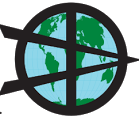Group Facilitation Can Help Save Life on Earth
In our critical decade and century, group facilitation can help organizations, communities, and nations achieve consensus and take action concerning the interconnected crises that we face. In fact, facilitation needs to become a default process and method in governance at all levels.
Have you seen facilitation skills used to strengthen capacities of groups to respond to social or environmental crises through discussion and planning? How was it done? How did it go? What was the follow up? I believe that we facilitators have a mandate to use our skills in this way.
When I was UNDP principal policy advisor on decentralized governance, for sixteen years I used Institute of Cultural Affairs (ICA) Technology of Participation (ToP) processes to help slums, cities, and countries develop projects, policies, and programs to deal with urban poverty and environmental degradation. At NYU Wagner, I taught graduate students for ten years how to use facilitation techniques of systems thinking, group discussion, strategic planning, and social artistry in their work of public service in local and national government and civil society organizations.
The six challenges
In my 2017 book, A Compassionate Civilization: The Urgency of Sustainable Development and Mindful Activism, I wrote about the need for a global-local movement of facilitators to help at every level of government, civil society, and multi-actor groups to deal with the interlocking crises we face. In my view, there are at least six challenges we face in this critical decade and century: climate chaos and ecocide, patriarchy and misogyny, systemic poverty and wealth inequality, plutocracy and fascism, racism and intolerance, and perpetual warfare and violence.
Since July 2021, I have been collaborating with a group of UK facilitators discussing how to take this further. During facilitation week this year, the group held an online workshop to advance this effort. I hope that other facilitators will discuss this with their colleagues and move into action. Next month, I give the keynote for the Korean Facilitation Association conference and will invite them to join this movement.
In A Compassionate Civilization I wrote:
“The facilitative leader sees him or herself as a guide who enables groups of people to think, analyze, plan, and act together through participatory, interactive processes. The facilitative leader asks questions of people that allow them to journey together in a structured manner toward productive outcomes. Facilitation of citizen participation is essential to motivate and call forth the creativity and energy of all the people to respond to the massive challenges facing us today. Facilitation can be learned as a new type of leadership that does not control outcomes but provides participatory processes that allow citizens to create the policies and services that are most important to them.
Needs skill and patience
“Facilitation requires skill and patience, an ability to listen deeply, and willingness to allow citizens to chart pathways of good governance and effective development. The facilitative leader has the skill to lead productive discussions, analytical and problem-solving workshops, strategic planning exercises, and whole system design processes.
“The facilitative leader asks people to articulate their hoped-for vision of the future; the factors that could enable or inhibit reaching that vision; and the strategic directions that would carry them toward their vision, taking into account the inhibiting and enhancing factors and the implementation action plan and timeline that they will commit to in the day-to-day.
“The government and NGOs must provide a multitude of opportunities of facilitated citizen dialogue and decision-making through forums, workshops, conferences, online chat rooms, websites, and social media.” (pages 137–138, A Compassionate Civilization”
Facilitators can help save life on Earth!
by Robertson Work
(28 October 2021)
Robertson Work is a nonfiction author and ecosystems/justice activist. He invites you to share your thoughts with him at robertsonwork100@gmail.com
Author page for my books: https://www.amazon.com/Robertson-Work/e/B075612GBF
Blogsite: https://compassionatecivilization.blogspot.com/
Website: https://www.robertsonwork.com/
